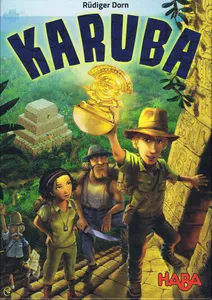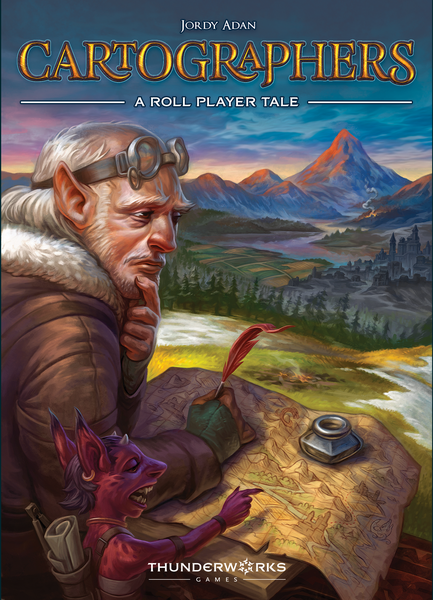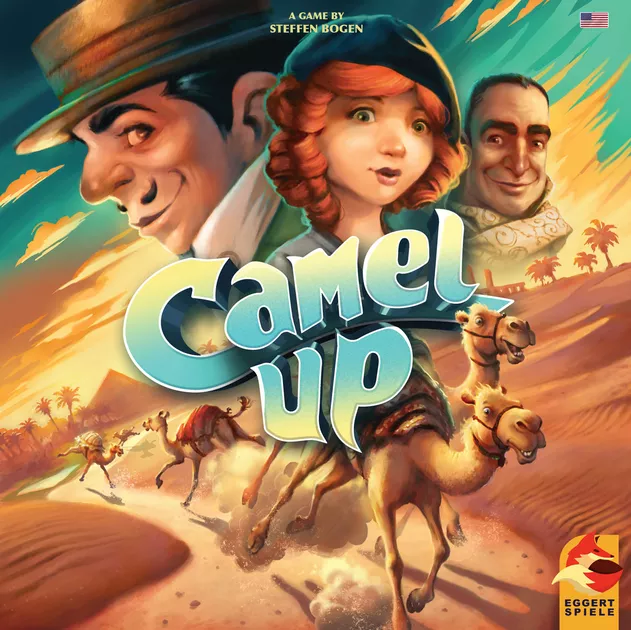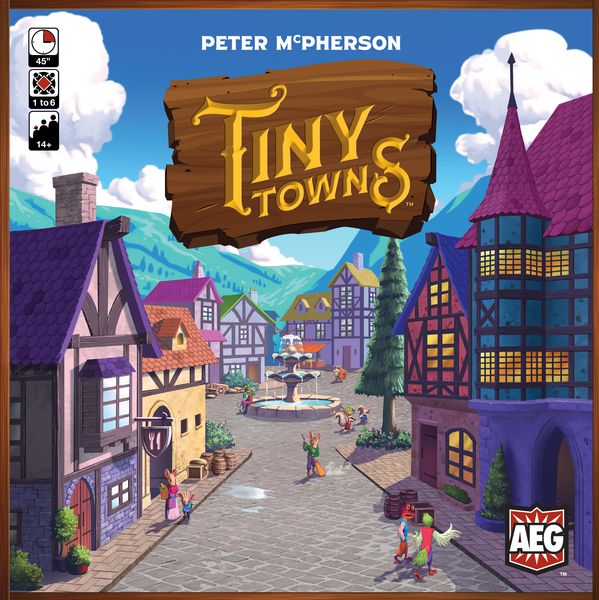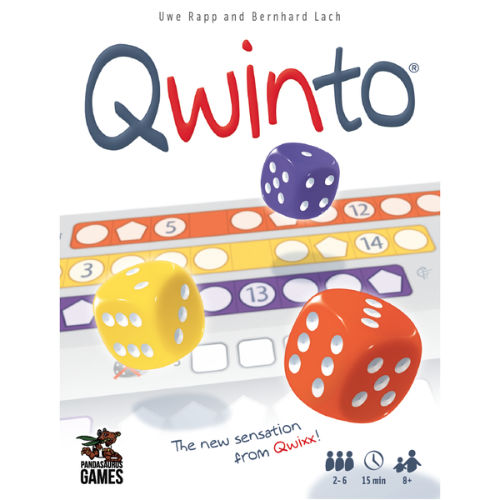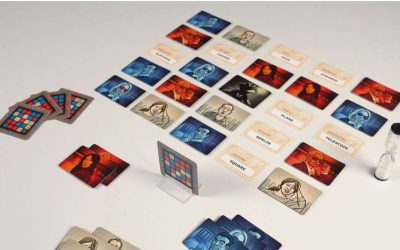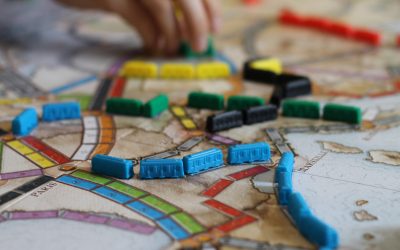Less-Conflict Games
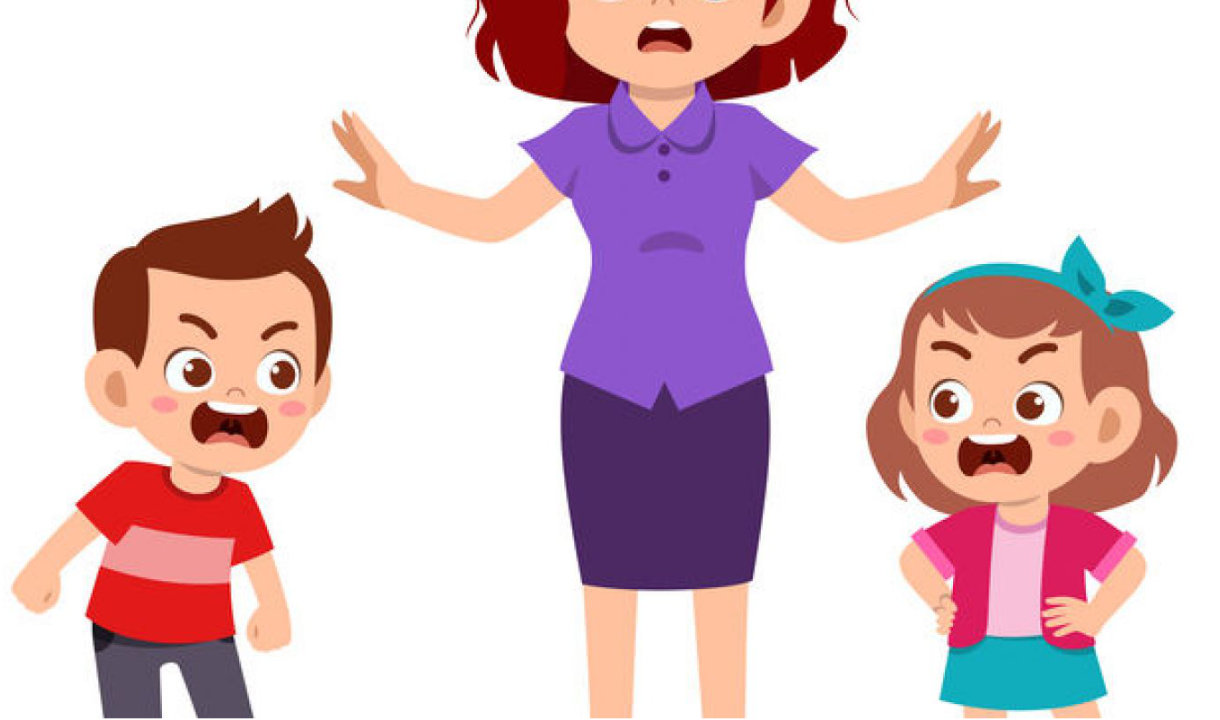
The other day a parent asked me a question:
She has two kids that are relatively close in age, and they all enjoy playing board games together as a family. The problem is that the two of them always fight with each other during the game. Sometimes an innocent gaming session eventually ends in tears. What games could I recommend, to ease the conflict?
Great question: And frankly one that I haven’t given a lot of thought to until now.
Fundamentally board games have the power to bring us together. They can gift us with memories and shared experiences. They can deepen friendships and often create new ones. This is all true, but what if you were prone to be in constant competition with one of your fellow gamers? Not just at the game table but in life in general? Well, in that case a friendly game can quickly become yet another part of a larger behaviour of rivalry. I am not a physiatrist, and I cannot scientifically explain what the different forces at work are here, but I do know from personal experiences with my own sister (I love you!), and from watching other families, that siblings like to compete on a regular basis. Why? I will let experts discuss that in different forum. For the record I am not limiting this simply to the behaviour of children. Let’s be honest here, don’t you still compete with your siblings at times, even as an adult? I thought so.
Let’s get back to the original question: What kind of game would I suggest in this context? Games are most often designed to bring out a sense of competition. There are winners and loser and there is an intrinsic reward in finding strategies that limit your opponent’s chances of succeeding. This can be a satisfying experience, as long as you don’t deal with fellow gamers that will take something too personally. But what if they do? The obvious answer would be to suggest a co-operative game – and that would be a good solution. There are plenty of titles on the market that encourage players to work together as a team against the game itself, rather than against the other players. But sometimes that can come with its own set of challenges: What if you have a player who does not want to listen to the other team members? What if you have someone who likes to tell everyone what to do? Either way, it is certainly a step in the right direction and definitely worth trying.
But sometimes we just want to play a game that allows us to explore our own individual strategies without the co-operative umbrella. In that case I would recommend games that don’t have a lot of player interaction. What do I mean by that? Most games require players to interact with each other by various degrees. The more one interacts, the more one is able to influence the outcome of the game for others. Take Catan for example. Player interaction is almost constant. We trade, block and attempt to limit expansions by others pretty much every turn. The more player interaction there is, the more opportunity for direct conflict will be available. For most gamers that is a positive thing, but if you simply don’t like conflict or try to limit it, it might not be for you.
On the flipside, one of the best examples of a game that has almost no player interaction would be Bingo. Each player has their own sheet in front of them and the communal numbers that are called are random. Individual players don’t really interact with each other at all, and the chances of me winning or losing has almost nothing to do at all with what other players did on their turn. The problem here is that, if I was looking forward to social and interactive experience, I might be a bit disappointed and leave unsatisfied.
Luckily there are some titles out there that offer us a bit of both worlds. Games that are based on little player interaction while still offering a fun experience and interpersonal connection.
If you are looking for a game that will (hopefully) allow everyone to be enjoying themselves without the risk of tears or hurt feelings, then these would be great options. For a peaceful gaming session that can be enjoyed by everyone, I recommend giving these a try.
In the meantime, I am going to give my sister a call…because I miss her.
2-4 players, ages 8 and up
The players have reached the island of Karuba and can go on the hunt for hidden treasures. Who will lead their expedition team along the smartest route through the jungle trails, pay attention to the other players and keep an eye out for gold and crystals along the way? Hurry up and be the first to reach the temples to collect the most valuable treasures. One player draws a tile and announces its number. Other players take the same tile, and everyone places them on their board simultaneously. The expedition team with the most valuable treasures wins the game.
CARTOGRAPHERS: A ROLL PLAYER TALE
1-99 players, ages 10 and up
In this roll-and-write style game, players compete to earn the most reputation stars by the time four seasons have passed. Each season, players draw on their individual map sheets and earn reputation by carrying out the queen’s edicts before the season is over. What a player is allowed to draw is based on random cards that are drawn. Drawing happens simultaneously. The player with the most reputation stars at the end of winter wins!
2-6 players, ages 8 and up
Players bet on five racing camels, trying to suss out which ones will place first and second in a quick race around a pyramid. The earlier you place your bet, the more you can win — should you guess correctly, of course. Camels don’t run neatly, however, sometimes landing on top of another one and being carried toward the finish line. Who’s going to run when? That all depends on how the dice come out of the pyramid dice shaker, which releases one die at a time when players pause from their bets long enough to see who’s actually moving!
1-6 plyers, ages 14 and up
You are the mayor of a tiny town in the forest. This new land is small, and the resources are scarce, so you take what you can get and never say no to building materials. Cleverly plan and construct a thriving town, and don’t let it fill up with wasted resources! Whoever builds the most prosperous tiny town wins!
Your town is represented by a 4×4 grid on which you will place resource cubes in specific layouts to construct buildings. In turn order, each player has the chance to announce which type of material will be used this round. When no player can place any more resources or construct any buildings, the game ends. The player with the most VP wins!
2-6 players, ages 8 and up
Players all play at the same time, with everyone trying to fill the rows on their scoresheets with numbers as quickly — and as highly — as possible in order to score the most points. Each player receives a scoresheet that contains three colored rows of shapes. On a turn, a player rolls 1–3 dice, with the dice being the same colors as the rows. Each player can place whatever sum is rolled into an empty shape in a row that matches the color of one of the dice.
The game continues until someone has filled two rows on their scoresheet or someone has tallied four misthrows. Players then tally their points. Whoever has the highest sum wins!
Are you intrigued to try a new 2-player game? Here are my top suggestions:
‘Spiel Des Jahres’ Winners 2021
Arguably the most important event with regards to the world of board gaming is ‘Das Spiel,’...a fair that is held each October in the German city of Essen. Exhibitors and guests from all around the world gather for 4 days to present and try all of the new and exciting...
Word Guessing Games
The philosopher Friedrich Nietzsche once said:...“All I need is a sheet of paper and something to write with, and then I can turn the world upside down.” Even though I am almost certain that he did not say this with regards to board games, part of me wonders and...
The History of ‘Ticket to Ride’
What defines a great board game?...It is its theme, the accessibility and elegance of the rules, the design and production of the components, the depth of strategy, or the level of enjoyment one experiences when playing it? I believe it is a combination of all of...
